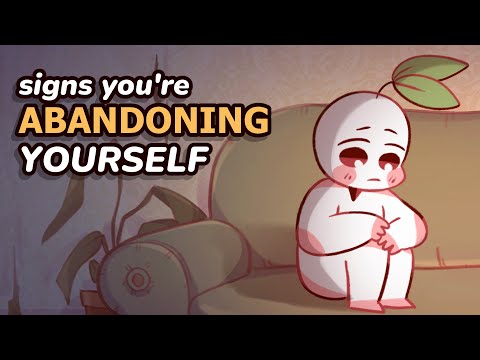From a young age, society teaches us to prioritize the needs of others and put our own desires on the back burner. We’re told that selflessness is a virtue and that taking care of ourselves is selfish. But in reality, self-abandonment can have dire consequences for our well-being.
Neglecting our own emotions, opinions, and values can lead to a sense of emptiness and disconnection from our true selves. That’s why it’s crucial to recognize the signs of self-abandonment and make a conscious effort to prioritize self-care and self-love. So, let’s dive into the warning signs that you may be neglecting your own needs.
People Pleasing:
Do you often find yourself saying yes to requests, taking on more responsibilities than you can handle, or putting your own goals and desires on the back burner to accommodate others? This is people-pleasing. While it’s natural to want to help others, when you constantly prioritize their needs before your own, it can be a sign that you’re abandoning yourself.
According to therapist and psychology professor Dr. Teo Smith, individuals who tend to prioritize the satisfaction of others over their own well-being should explore ways of assisting others without causing harm to themselves. You can do this by setting boundaries and respectfully declining tasks that don’t align with your comfort level, while still offering your support for the ones that do. Without a solid foundation of self-care, you can’t truly be there for others in a sustainable way.
External Validation:
Do you seek external validation? When you always put the needs of others before your own, you can develop a strong subconscious desire to receive praise, recognition, and validation from them as a way to feel good about yourself. But changing yourself to fit others’ expectations can result in self-hatred, anxiety, and stress, especially when they fail to validate you.
In the words of William Shakespeare, “Self-love, my liege, is not so vile a sin as self-neglecting.” Remember that there is nothing wrong or shameful about who you truly are. When you learn to love yourself and stop seeking external validation, you can authentically integrate every part of yourself into everything you do. This can help you build genuine relationships with others as well as with yourself.
You Avoid Emotions:
Do you avoid emotions? This can look like taking on a job that you don’t feel comfortable with, being in a friend group that conflicts with your values and prevents you from being your true authentic self, or pushing your emotions to the side. This creates a buildup of anxiety and inner tension. You may try to find comfort in other ways by venting, getting drunk, or eating unhealthily. However, avoiding your emotions only perpetuates the cycle of neglect.
Ever feel so much better after a good crying session? According to licensed psychotherapist Sharon Martin, it’s important to acknowledge and process your feelings instead of neglecting them. When you feel emotionally overwhelmed, you can try journaling, meditating, talking to a friend or therapist, or engaging in activities that bring you joy. If possible, try finding a job or friend group with whom you feel comfortable and aligned. When you allow yourself to feel instead of trying to push your emotions aside, you can breathe, be attentive, and heal from the things you’ve been avoiding.
You Don’t Respect Yourself or Set Boundaries:
When you lack self-respect, you may tend to make choices that conflict with your values, which undermines your happiness and self-worth. Building self-respect entails recognizing your worth and establishing healthy boundaries to ensure your needs are met.
Setting boundaries is a crucial component of self-care that requires communicating limits to others assertively and clearly. According to psychotherapist Joe Nash, Ph.D., setting boundaries not only fosters positive relationships but also correlates with better emotional and mental health and a stronger sense of identity.
Failing to set boundaries may result in overextending yourself and neglecting your needs. It’s important to communicate your boundaries clearly and assertively, even if it makes you uncomfortable at first. This can look like saying no to requests that don’t align with personal values, taking breaks when necessary, and communicating needs in a relationship without feeling guilty or ashamed.
How to Self-Abandon Less:
Reflect on your situation and ask yourself honest questions. Is it right for you to hold so much tension at work because you’re not being your true self? Is your partner’s acceptance conditional on you behaving in a certain way? Are your friends expecting you to change to fit in with social media? We’re often conditioned to seek approval from others and do what they want.
By being truthful with yourself, you can recognize if you’re sacrificing your authentic self for others. Remember to value yourself for who you are, not who others think you should be. Set boundaries and say yes only when you truly want to. If you neglect yourself for too long, you risk feeling anxious, depressed, and tense. A good sign that you’re on the right path is feeling present and relaxed.







Leave a Comment